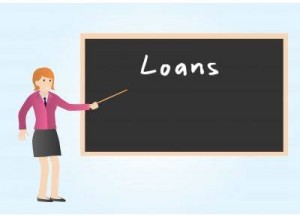The subject of loans and credit can be a bit overwhelming if you haven’t spent any time researching and understanding them. There are endless different types of loans on the market… for example, unsecured loans, secured loans, credit cards, overdrafts, payday loans, personal loans, etc. So it’s important that you understand your credit situation in order to find the right type of loan for your needs and credit situation. Of course it always better to not borrow at all, if it is possible. But it is still important to understand the various types of loans and how they work in case you do need them.
What’s the Purpose of the Loan?

If you need a loan for a medium value item like a car, the best terms are generally available from the manufacturer or dealer, often you may even find below market or even 0% financing if they really want to sell their cars.
If you need a loan for a lower value item like a holiday, to pay the bills or emergency repairs, it is likely that you will source either an overdraft, credit card, payday loan or other type of ‘unsecured’ loan. This means that if you miss any of the repayments, although there are financial and legal implications, you will not necessarily lose the item like you would on a secured loan.
Editor’s Note: These are the types of loans that get you in trouble financially. Taking a holiday on borrowed money is simply asking for trouble. If you can’t afford to pay for it from savings you should be working harder not taking a vacation. Bills should be paid from earnings. If you can’t pay your current bills, you need to cut your expenses. After all if you can’t pay them now, what makes you think you will be able to pay them once you tack interest charges on top of the bills? The one exception would be paying for an emergency illness. Obviously if you can’t work you can’t earn money to pay your bills. Emergency repairs, tires, etc should be budgeted for and paid out of savings. Most things that people call “emergencies” aren’t really an emergency they are normal maintenance that hasn’t been budgeted for. Sooner or later tires wear out that is not an emergency it is a fact of life. You may not know exactly what will break next but you do know that something will, so if you set aside a contingency fund it is no longer an emergency. Personally the only type of loans that I view as acceptable are for business purposes (that produce more than they cost), for Education (to improve your earning power) and for a home mortgage. See: The Wealthy Buy Assets, the Poor Buy Liabilities, and the Middle Class Buy Liabilites Believing They Are Assets for more information.Loans vs. Credit
Credit however, is the flip side of loans. Credit is an evaluation of how worthy you are to borrow. Your credit score is generated by an independent credit reporting company like Experian who report on all of your past financial transactions, any failed payments, CCJs (County Court Judgements) or bankruptcies. The Credit Reporting agencies assess you to determine how ‘credit worthy’ you are and how reliable you would be at making loan repayments. Unfortunately if you have a poor credit history, this does limit your credit options and increase the interest rates that you will have to pay.

